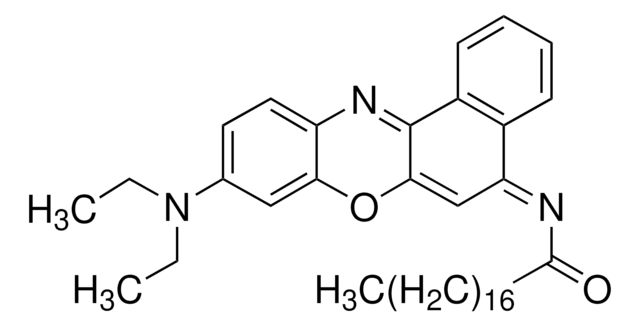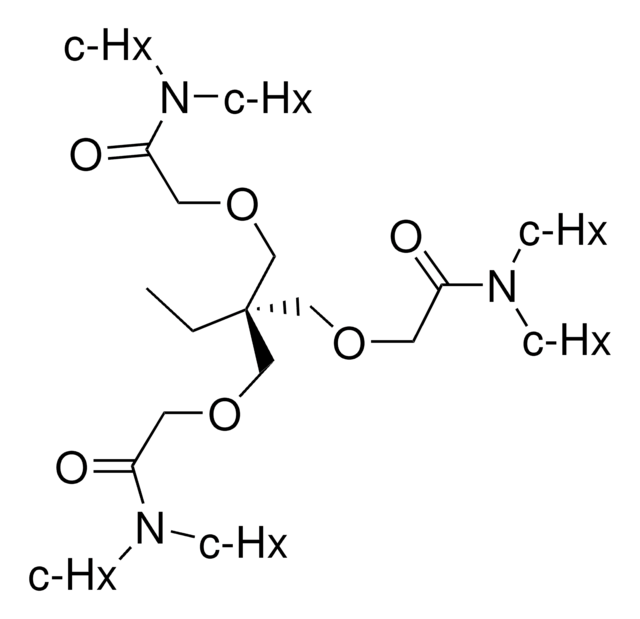27088
Chromoionophore III
Selectophore™
Synonym(s):
9-(Diethylamino)-5-[(2-octyldecyl)imino]benzo[a]phenoxazine, ETH 5350
About This Item
Recommended Products
product line
Selectophore™
Quality Level
form
solid
SMILES string
CCCCCCCCC(CCCCCCCC)C\N=C1/C=C2Oc3cc(ccc3N=C2c4ccccc14)N(CC)CC
InChI
1S/C38H55N3O/c1-5-9-11-13-15-17-21-30(22-18-16-14-12-10-6-2)29-39-35-28-37-38(33-24-20-19-23-32(33)35)40-34-26-25-31(27-36(34)42-37)41(7-3)8-4/h19-20,23-28,30H,5-18,21-22,29H2,1-4H3/b39-35+
InChI key
ICVAQSQRYBGWQH-IGIMMJHKSA-N
Looking for similar products? Visit Product Comparison Guide
General description
Application
Packaging
Legal Information
related product
Storage Class Code
11 - Combustible Solids
WGK
WGK 3
Flash Point(F)
Not applicable
Flash Point(C)
Not applicable
Personal Protective Equipment
Choose from one of the most recent versions:
Certificates of Analysis (COA)
Sorry, we don't have COAs for this product available online at this time.
If you need assistance, please contact Customer Support.
Already Own This Product?
Find documentation for the products that you have recently purchased in the Document Library.
Our team of scientists has experience in all areas of research including Life Science, Material Science, Chemical Synthesis, Chromatography, Analytical and many others.
Contact Technical Service




![Potassium tetrakis[3,5-bis(trifluoromethyl)phenyl]borate Selectophore™](/deepweb/assets/sigmaaldrich/product/structures/631/130/b5486f44-2e69-40d0-902f-dd71894a6add/640/b5486f44-2e69-40d0-902f-dd71894a6add.png)
![Sodium tetrakis[3,5-bis(trifluoromethyl)phenyl]borate Selectophore™](/deepweb/assets/sigmaaldrich/product/structures/251/439/7a621e74-bfd1-4a43-833c-09adfcc1e0b3/640/7a621e74-bfd1-4a43-833c-09adfcc1e0b3.png)
